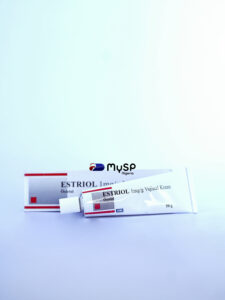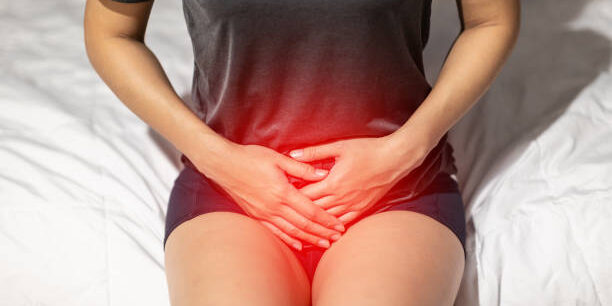Struggling With Vaginal Dryness
Vaginal dryness is a typical symptom of menopause and can occur at any age and for a variety of causes.
Low estrogen levels are frequently to blame for vaginal dryness. The hormone estrogen is responsible for maintaining the thick, elastic, and lubricant lining of the vagina.
Although vaginal dryness is a common condition, many people choose not to seek treatment because they may not be aware that it is a medical disease for which treatment is available.
It may cause discomfort during sexual activity, which may decrease one’s desire for sexual relations. Additionally, it can make sports and other strenuous activities uncomfortable and raise the danger of vaginal infections.
The signs and symptoms of vaginal dryness can be treated using a variety of methods.
See also: My Pleasure Pack
Causes of vaginal dryness
- Reduction in estrogen levels frequently causes vaginal dryness. Estrogen levels start to fall as menopause draws near.
Estrogen, which is produced by the ovaries, regulates how the female body—including the breasts and the contour of the body—develops. It is important for both pregnancy and the menstrual cycle. The vaginal tissues are kept thick, hydrated, and healthy by estrogen. The lining gets drier, less elastic, and thinner as levels drop. Vaginal atrophy is the term for these modifications.
There are several reasons why estrogen levels might decrease, including:
- Chemotherapy, radiation therapy, anti-estrogen medications for the treatment of breast cancer or endometriosis, and childbirth and nursing as cancer therapies
Other factors
Among the prominent sources for vaginal dryness are:
- An inflammatory condition called Sjögren’s syndrome causes inflammation of the tear and salivary glands.
- Taking antihistamines, which work by drying down secretions to treat cold and allergy symptoms Dryness in the vagina and difficulty peeing are possible side effects.
- Antidepressants, which can occasionally cause sexual adverse effects include dry vagina, lowered libido, and trouble experiencing an orgasm.
- Anxiety and stress, which can have an impact on libido and vaginal lubrication.
- Reduced blood flow to the vagina.
- Flammer syndrome, in which blood vessels respond strangely to external stimuli like stress and cold.
- Vaginal dryness may start earlier in life for women who smoke because they may go through menopause earlier than those who don’t.
See also: How to Start Morning Sex Session and Why You Should
Symptoms
Women who have dry vagina and vaginal atrophy may suffer
- Itchy feeling in the vagina
- Vaginal infections and urinary tract infections are more likely, there is pain during sex, discomfort during physical activity, and
If a drop in estrogen levels is the cause of the dryness, they may also have:
- Tightness of the vaginal entrance, a constriction of the vagina, and reduced amounts of natural vaginal secretions
The combination of these alterations is called dyspareunia. They could cause discomfort during penetrating intercourse.
Treatment
- Vulvar ring (Estring). A flexible ring is inserted into the vagina, where it slowly delivers little quantities of estrogen into the tissues over time. Every 90 days, you should swap out the ring.
- Feminine cream (Estrace, Premarin). An applicator can be used to apply the cream to the vagina.
Women who have a history of breast cancer, pregnantwomen, or nursing mothers, should discuss the safety of topical estrogen treatment with their doctor. Instead, the doctor could advise non-hormonal therapy.

Estriol Vaginal Cream
Get Estriol Vaginal Cream from Mysp shop
Nonprescription medicines
These are medications that do not require prescription from a physician.
For instance, lubricants can be used to promote wetness during sexual contact. Oil-based lubricants might cause irritation and condom breakage, thus water-based lubricants may be preferred.
To assist preserve the vagina’s natural moisture, you could also apply vaginal moisturizers every one to two days.
Home remedies for treating vaginal dryness
Several lifestyle modifications can aid in reducing vaginal dryness and pain.
1. Regular sex
Vaginal dryness can be controlled by routine sexual activity, whether performed alone or with a partner. During arousal, blood flow to the vaginal tissues rises, which aids in promoting moisture production.
Vaginal dryness may be alleviated and sex can be made more pleasurable with adequate foreplay and excitement before intercourse.
2. Don’t use certain hygiene products.
Fragrances and colors included in many personal care and body care products have the potential to irritate or dry up vaginal tissue.
The vagina is self-cleaning and has a delicate balance of beneficial bacteria. Douching or the use of aromatic soaps are unnecessary around the delicate vaginal region.
3. Supplements with phytoestrogen
Phytoestrogens are substances that function in the body similarly to estrogen. They can be found in meals made from plants, such as soy, almonds, seeds, and tofu.
See also: 11 Things You Should And Should Not Do After Sex
Conclusion
A typical sign of a reduction in estrogen levels, even at the beginning of menopause, is vaginal dryness. Although it is unlikely to have a substantial negative impact on health, it may nonetheless cause pain.
One low-risk therapy is topical estrogen cream. Vaginal moisturizers and the use of lubricants during sexual activity are two over-the-counter remedies for mild symptoms.







1 Comment